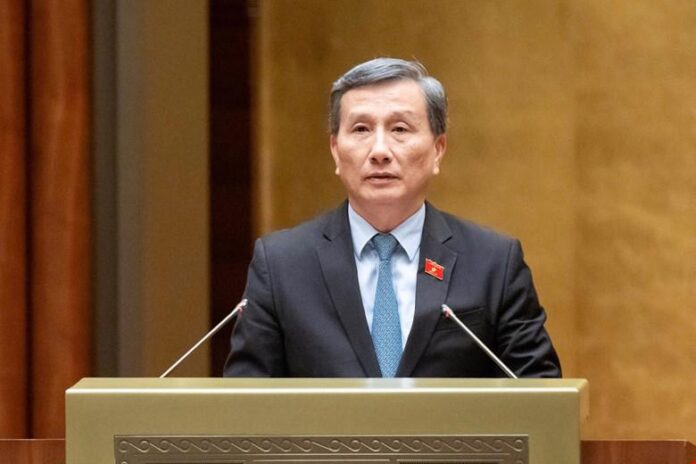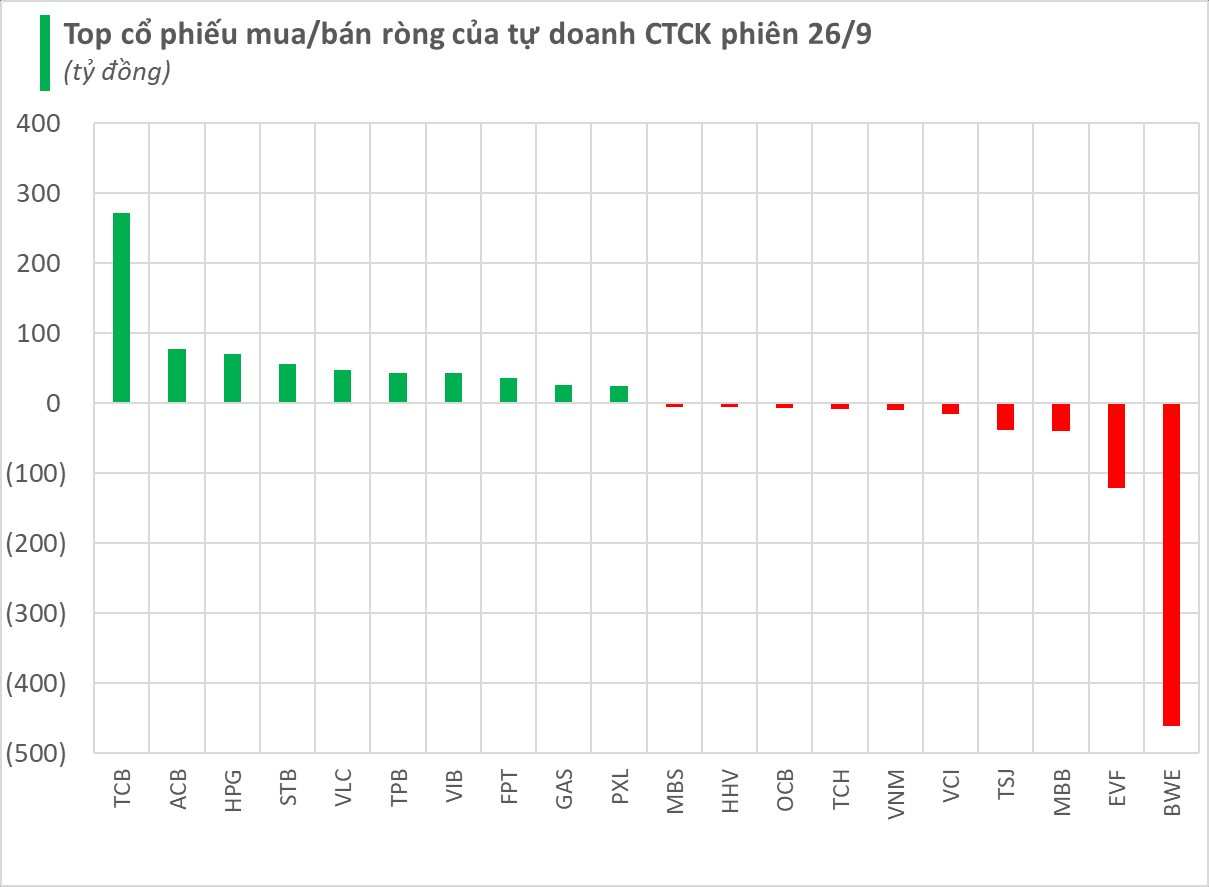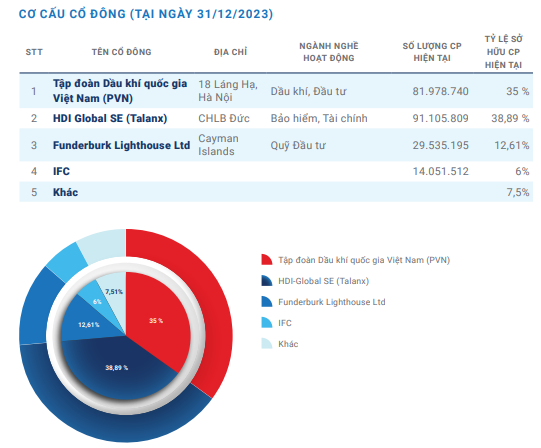In his report to the National Assembly on the absorption and editing of the draft Law on Digital Industry, Chairman of the National Assembly’s Committee for Science, Technology and Environment, Le Quang Huy, stated that there were suggestions to develop a comprehensive legal framework for digital assets. This framework would detail core issues, immediately addressing matters such as property rights, ownership, transactions, security, responsibilities, dispute resolution, and risk management.
This two-pronged approach ensures harmony with the current legal system and international practices while establishing a regulatory mechanism for supervision, risk prevention, and control. It also clarifies whether digital assets can be used for exchange or investment purposes. There is a request to elucidate the intrinsic meaning and classification criteria for digital assets.
PROVIDING MORE DETAILED PROVISIONS ON CORE CONTENT IN STATE MANAGEMENT OF DIGITAL ASSETS
The National Assembly’s Committee observed that according to the draft law, digital assets have been recognized as property under the current civil law. Matters such as property rights, ownership, transactions, security, responsibilities, and dispute resolution are already governed by criminal law, anti-corruption law, anti-money laundering law, and other relevant legal provisions.
To ensure feasibility, flexibility, and stability in the legal system, the draft law only provides general principles and delegates the government to formulate specific regulations that align with practical development.
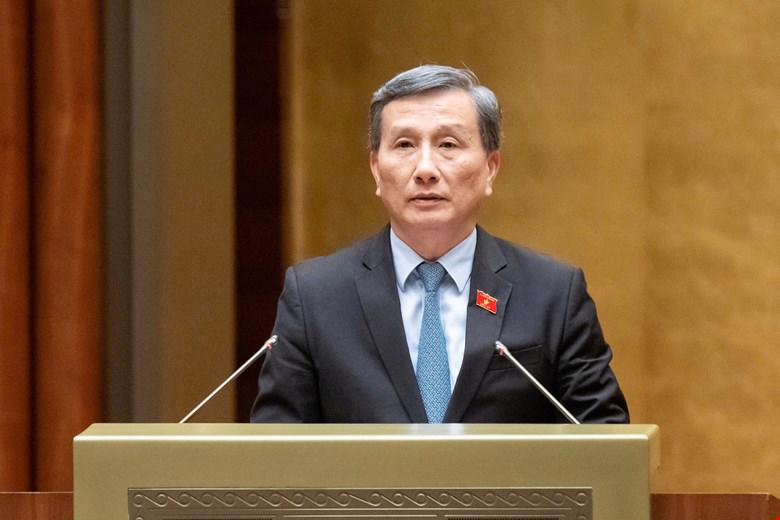
The draft law has been refined to provide more detailed provisions on core content in state management of digital assets. These include the creation, issuance, storage, custody, transfer, and establishment of ownership of digital assets; the rights and obligations of parties involved in activities related to digital assets; measures to ensure information security and cybersecurity; prevention of money laundering and terrorism; inspection, examination, and handling of violations related to digital assets; business conditions for providing encrypted asset services; and the issuance of encrypted assets. The government is also tasked with providing detailed regulations on authority and management of digital assets in specialized fields, aligning with practical conditions.
During the hall discussion on certain differing opinions regarding the draft Law on Digital Industry, specifically concerning digital assets, delegate Trinh Thi Tu Anh from Lam Dong province proposed adding a provision about “uniqueness or substitutability.” This characteristic of digital assets directly impacts their transactions, valuation, and utilization.
“Uniqueness creates scarcity and distinct value for each type of digital asset, allowing them to represent ownership of exclusive items in both the physical and digital worlds,” the delegate explained. “Substitutability enables easy exchange and use of digital assets as a form of currency, enhancing liquidity and promoting commercial transactions. It also serves as the foundation for non-financial, centralized applications.”
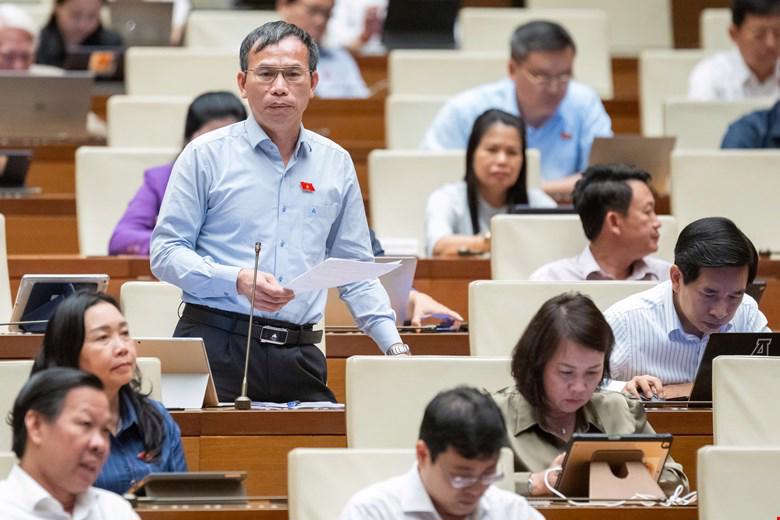
Regarding the provisions on digital assets (Article 49), delegate Dong Ngoc Ba from Binh Dinh province acknowledged that this is a novel aspect addressing long-standing practical demands. She suggested a clearer distinction between three groups of digital assets: virtual assets, encrypted assets, and other digital assets. However, the criteria for classifying these three types of assets are somewhat unclear and unreasonable.
Specifically, for virtual assets, the draft uses the criterion of potential use for exchange or investment to differentiate them from other digital assets, which is unconvincing and challenging to enforce. Through research, the delegate found that there are diverse and complex perspectives on this matter, but virtual assets are generally understood to be created by digital technologies and associated with a specific virtual environment. This classification aims to establish distinct management mechanisms, encompassing both the creation and transaction processes of these assets.
Regarding encrypted assets, the delegate noted that globally, encrypted assets are often associated with blockchain technology, as exemplified by bitcoin, real estate tokens, and NFTs. Based on these prevalent concepts, she proposed general technical criteria to distinguish the three groups of digital assets and subsequently establish appropriate management mechanisms.
STUDYING THE AMENDMENT AND SUPPLEMENTATION OF INTELLECTUAL PROPERTY RIGHTS PROVISIONS FOR AI-GENERATED PRODUCTS
Regarding the management of artificial intelligence (AI), the report of the National Assembly’s Committee mentioned suggestions to incorporate risk management principles and measures to promote, develop, and apply AI across various sectors. It was also proposed to include provisions on intellectual property rights for AI-utilized products.
On the topic of risk management and measures to promote AI systems, the National Assembly’s Committee observed that the draft law already includes provisions that encourage AI research, development, and application in daily life. It focuses on risk management and human-centric approaches, regulating high-risk AI systems and those with significant impacts. The draft law also delegates the government to formulate detailed regulations that align with the practical management of industries and sectors. These risk management principles are carefully crafted by selectively adopting international experiences and tailoring them to the Vietnamese context.
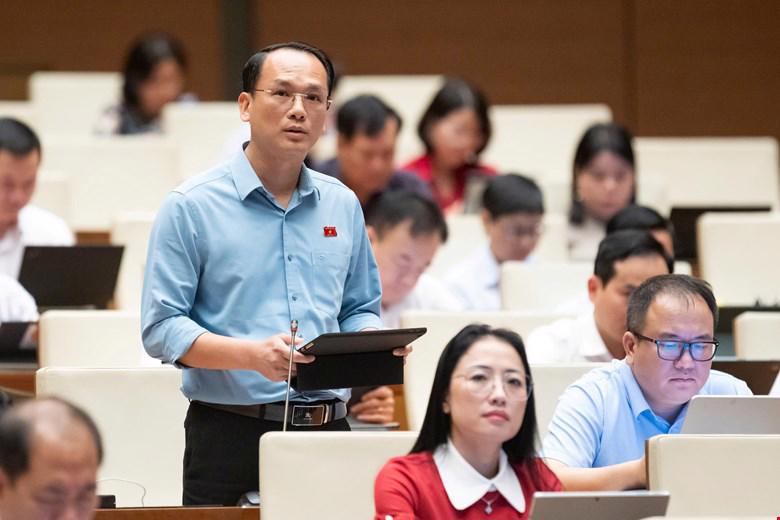
Additionally, the draft law introduces a provision on the Strategy for AI Research, Development, and Application to promote effective, sustainable, and responsible AI utilization across sectors.
Regarding the suggestion for intellectual property rights provisions for AI, the National Assembly’s Committee acknowledged that Vietnam’s intellectual property laws grant ownership rights only to organizations or individuals (humans) who own or directly create a portion or entirety of a work, invention, etc. These rights are not applicable to AI.
Currently, the World Intellectual Property Organization (WIPO) and numerous countries are actively studying the issue of intellectual property rights for AI-generated products, but no official legalization or inclusion in international conventions has occurred yet. Therefore, the National Assembly’s Committee will direct the study and amendment of the Law on Intellectual Property at an appropriate time to address this matter comprehensively.
During the discussion on the principles of developing, providing, deploying, and utilizing AI systems, delegate Luu Ba Mac from Lang Son province proposed considering the addition of a provision. He suggested that high-risk or widely impactful AI systems undergo evaluation and certification by independent, state-designated inspection organizations before their official deployment.
“This not only enhances state management effectiveness but also provides a legal basis for businesses and citizens to confidently adopt AI in their lives, production, and business operations, especially in the current context of digital economy and digital society,” emphasized the delegate from Lang Son province.
The Evolution of an Entrepreneur: Mr. Nguyen Van Tuan’s Journey and Decision to Step Down from the Gelex Board
“I believe it is beneficial for me to be part of the executive team without being on the board of directors. Even if I step down from this role in the future, we will find suitable individuals to lead the Group forward.” – said Mr. Nguyen Van Tuan.
“MB Securities is Hiring: 1,000 Brokers Wanted. Attractive 100% Commission-Based Remuneration.”
The Vietnamese stock market is on the cusp of a significant enhancement in liquidity and performance. With the Ministry of Finance and the State Securities Commission’s announcement of implementing solutions to achieve the market upgrade goal by 2025, it presents a pivotal moment for the industry. This has spurred securities companies to adopt unprecedented business strategies to seize the opportunity, accelerate growth, and attain a leading position in the market.
The Crypto Conundrum: Virtual Money, Real Losses
In recent times, a myriad of new scams has emerged, preying on the greed and ignorance of unsuspecting individuals. These scams lure people into investing and trading various forms of virtual currencies with promises of hefty future profits. However, blinded by these enticing promises, investors often overlook the inherent risks, ultimately losing their hard-earned money on worthless virtual “assets.”

